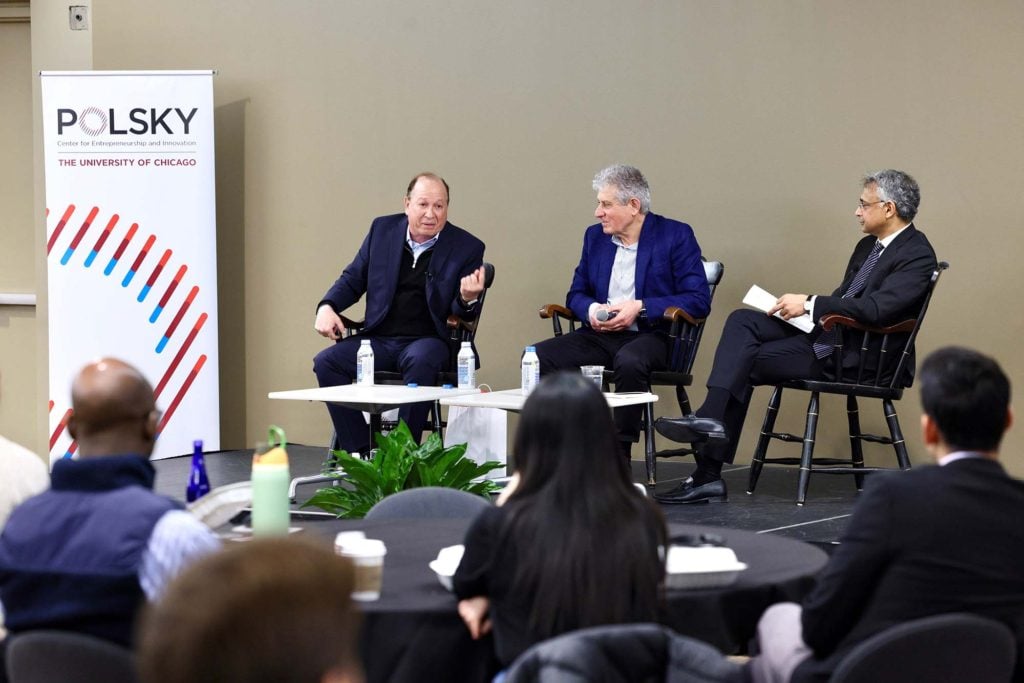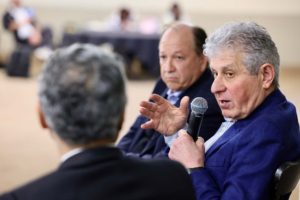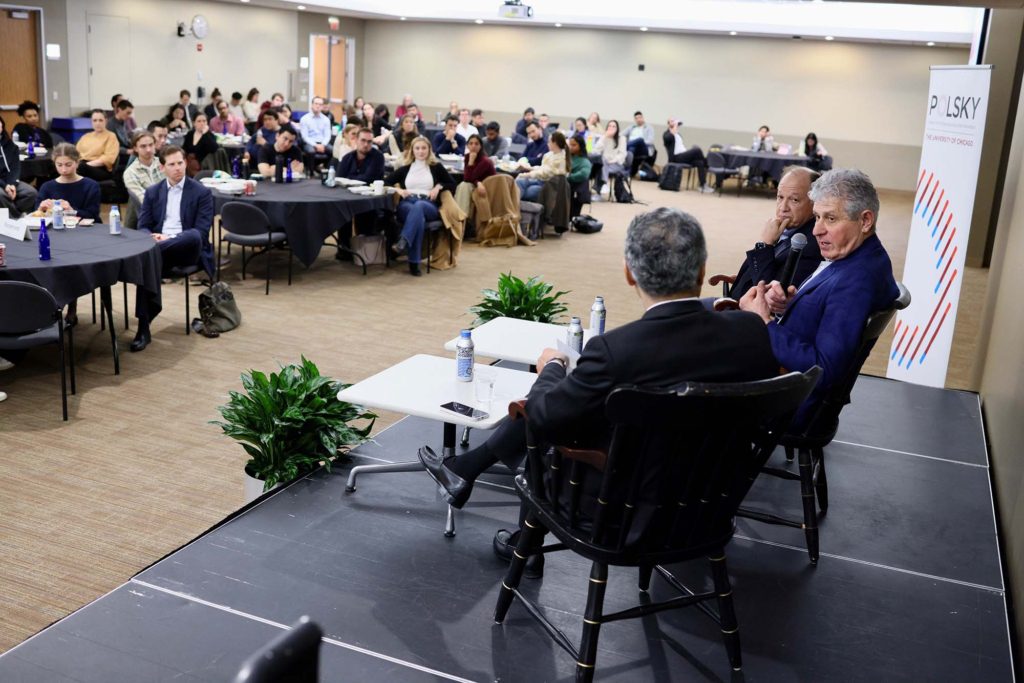Michael Polsky and Andy Karsner Discuss the Future of Energy Innovation

Michael Polsky, CEO of Invenergy, and Andy Karsner, senior strategist at Alphabet’s X, came together in a fireside chat moderated by Chicago Booth School of Business Dean Madhav Rajan to examine the intersection of innovation, policy, and the evolving global energy landscape.
Hosted by the Polsky Center for Entrepreneurship and Innovation, the discussion centered on the concept of the energy transition – what it means, what drives it, and the ways in which it can be shaped by the next generation of leaders.
Both Polsky and Karsner emphasized that energy transitions throughout history have been propelled not by ideology, but by advances in technology. They argued that current developments in areas such as electric mobility, data infrastructure, and renewables are following that same trajectory, driven by innovation rather than political agendas.
Despite that, the speakers acknowledged the heavy political influence in the energy sector. They described how government policy, whether supportive or obstructive, plays a crucial role in shaping the pace and scale of energy transformation.
While government can accelerate innovation through long-term planning and investment, it can also create instability when regulatory direction shifts too frequently or becomes entangled in partisan agendas. 
Nuclear energy emerged as a recurring theme during the conversation. Both leaders recognized the significant promise of next-generation nuclear solutions, particularly as global electricity demand rises. However, they noted that long timelines, high costs, and social and political hurdles may limit progress. Still, they expressed confidence that sustained innovation and smart policy could help unlock the potential of nuclear in a future energy mix.
When it came to the role of private industry and public policy, both Polsky and Karsner mentioned the importance of clear, consistent frameworks that support long-term investments. They highlighted how unpredictability in incentives and shifting regulations can create barriers for projects with large capital requirements and long development cycles.
Looking ahead, both speakers remain optimistic for students and emerging entrepreneurs. The energy sector, they said, is on the brink of transformational change driven by demand for smarter grids, better materials, expanded battery storage, and more efficient manufacturing. For those prepared to navigate the complex regulatory and financial terrain, energy offers ground for impact.
Following initial conversation, students took the mic for open Q&A. They asked how private sector leaders can stay the course amid political uncertainty, and questioned how today’s students can contribute to a more resilient energy system.
Polsky urged students to consider careers in energy as the sector faces unprecedented demand, making it an exciting time to be in this space. Karsner closed on a personal note, telling students to invest in themselves and to follow whatever makes them get out of bed in the morning.
In a moment of tribute and acknowledgement of their long history together, Karsner praised Polsky, calling him the kind of entrepreneur the world needs – one who builds a better society.
The views opinions expressed in the story do not represent those of the organizations or companies that the speakers represent.
